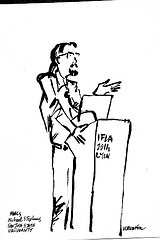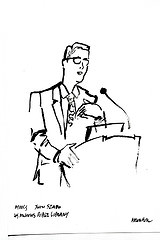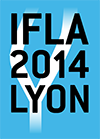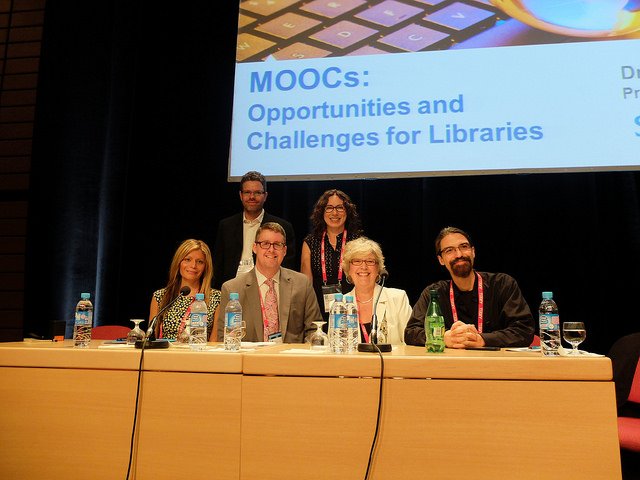
80th IFLA General Conference and Assembly
16-22 August 2014, Lyon, France
19 August 2014
MOOCs: Looking beyond the hype
Русский | Español | 简体中文 | Deutsch | français | العربية
Hailed as the next big thing or derided as an overblown trend, much has been said about Massive Open Online Courses (MOOCs). They are mentioned in the IFLA Trend Report (Trend #2), and it was no surprise to see Session 95 on “MOOCs: Opportunities and Challenges for Libraries” attract a significant number of attendees. Sponsored by the Continuing Professional Development and Workplace Learning Section, the Session was the perfect venue to have an overview of what MOOCs are about, their impacts on the profession, and the opportunities that lies in them for libraries.
 Following a brief introduction to MOOCs by Sandra Hirsh, we next heard from Michael Stephens, from the San Jose State University, and Wendy Newman, from the University of Toronto, shared their experiences of transforming LIS courses into MOOCs. Their respective projects – The Hyperlinked Library and Library Advocacy Unshushed - allowed them to reach a broader audience and contribute to the continuous professional learning of fellow librarians. Newman was however quick to point out that the decision to launch MOOCs can be motivated by the desire to explore innovative pedagogy as much as the prospect of enhancing a university’s reputation.
Following a brief introduction to MOOCs by Sandra Hirsh, we next heard from Michael Stephens, from the San Jose State University, and Wendy Newman, from the University of Toronto, shared their experiences of transforming LIS courses into MOOCs. Their respective projects – The Hyperlinked Library and Library Advocacy Unshushed - allowed them to reach a broader audience and contribute to the continuous professional learning of fellow librarians. Newman was however quick to point out that the decision to launch MOOCs can be motivated by the desire to explore innovative pedagogy as much as the prospect of enhancing a university’s reputation.
 This marketing side apart, how can libraries harness the potential of MOOCs to serve their communities? Addressing this issue, John Szabo, of the Los Angeles Public Library, held the view that MOOCs are extremely relevant for public libraries in terms of access to information, empowerment and lifelong learning. Giving examples of current and potential uses, including the first accredited online high school diploma to be offered by a public library in the United States, he stressed the importance of libraries as engines of development, and not just in developing countries. Adding to Szabo’s plea, IFLA Governing Board member Loida Garcia-Febo proceeded to give an overview of recent initiatives in developing countries which, in her opinion, could be serious alternatives to educational institutions as long as the right local partnerships and policies are implemented.
This marketing side apart, how can libraries harness the potential of MOOCs to serve their communities? Addressing this issue, John Szabo, of the Los Angeles Public Library, held the view that MOOCs are extremely relevant for public libraries in terms of access to information, empowerment and lifelong learning. Giving examples of current and potential uses, including the first accredited online high school diploma to be offered by a public library in the United States, he stressed the importance of libraries as engines of development, and not just in developing countries. Adding to Szabo’s plea, IFLA Governing Board member Loida Garcia-Febo proceeded to give an overview of recent initiatives in developing countries which, in her opinion, could be serious alternatives to educational institutions as long as the right local partnerships and policies are implemented.
Last to speak was Jan Holmquist, Assistant Library Director at Guldborgsund, Denmark, who delivered an intriguing and original presentation of the online professional development tool 23 mobile things. With its crash courses on how to use mobile tools such as Twitter or QR Codes for library services, the resource quickly became a librarian’s favorite. Yet, the striking feature was the simplicity of Holmquist’s conclusion: our role as librarians is to support learning, and MOOCs are just one of many ways to learn. By supporting learning on all levels, libraries make their communities smarter.
Session 95 was an ideal prelude to Session 164 with Pierre Dillenbourg on Wednesday 20 August at 08:30.
Last update: 19 August 2014



